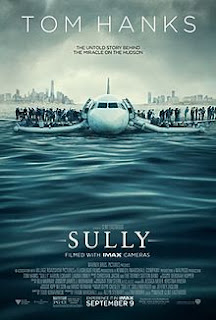Waiting for Godot
Written by Samuel Beckett
Directed by Ben Barnes
Where: Thompson Theatre at the Roselle Center for the Arts
(University of Delaware, Newark, DE)
When: Sunday, October 2, 2pm
Photo by Paul Cerro/The REP
So is a play a success if it aims to be boring and succeeds at that? While some may argue that Waiting for Godot isn't tedious, but rather an engaging 150 minutes of tragicomedy, this theatergoer must disagree. However, considering this is a play that focuses on the mundanity and repetition of daily existence, I'd say the University of Delaware's Resident Ensemble Players' production of Samuel Beckett's well-known play is a success despite the fact that I never want to see it again.
I had never read Waiting for Godot in any literature class, but its reputation was certainly known to me. It's been the butt of numerous jokes all of which capitalize on the notion that it's a play about "nothing" -- a bit of a 1950s Seinfeld episode stretched out to over two hours. Plot-wise, I'd concur - the play is really about nothing other than two hobo-ish tramps sitting around talking (in a very circular way) as they literally wait around for a guy named Godot who -- spoiler alert -- never shows. While there's minimal plot (or, as some would say, no plot), there is something here. A pre-show talk featuring REP member Steve Tague keyed me in to the notion of the play being about people's daily repetitive lives while also allowing some small, though key, glimpses into the post-WWII era in which the play was written.
All of that is well and good...but you still walk away from it going, "Is that all?" It's a play I'm glad I saw, but I'd never recommend it to anyone. That said, if you're going to see a production of Waiting for Godot, I have to imagine the REP is putting on as good of a one as you're going to get. The playful, almost clownish repartee between REP leads Stephen Pelinski and Lee Ernst -- the former is as good as always and the latter succeeds in making this his best REP role yet -- makes the play innately watchable despite the fact that you're often admittedly struck dull by the monotony of the piece. The sometimes quick back-and-forth patter between Ernst and Pelinski oftentimes had a very "Who's on First" Abbot and Costello stylization which at least provides pockets of amusement in the midst of ennui that makes up much of the rest of the dialog. Nice turns from Mic Matarrese and Michael Gotch round out the ensemble who all deserve the credit for allowing me as a viewer to "hang in there" when many would've baled...or at the very least fallen asleep (as the woman next to me did as well as two people in the front row).
Amid a barren, though starkly beautiful set by Kristen Robinson, to me director Ben Barnes does all that he can with the script and certainly, as mentioned, gets the very best from his cast of actors. Obviously, those more erudite than me find this play to be a bit of a masterpiece and I'm nowhere near able to agree with that statement. Surprisingly, though, as I formulated this review, I found myself wanting to read a bit more about the play and research its "meanings" and "reason for existence." Perhaps I'll do that in time. In the end, Waiting for Godot wasn't nearly as bad as I expected it to be. And while I admit that's damning praise, I'm actually very happy the REP afforded me the opportunity to see the piece performed.








